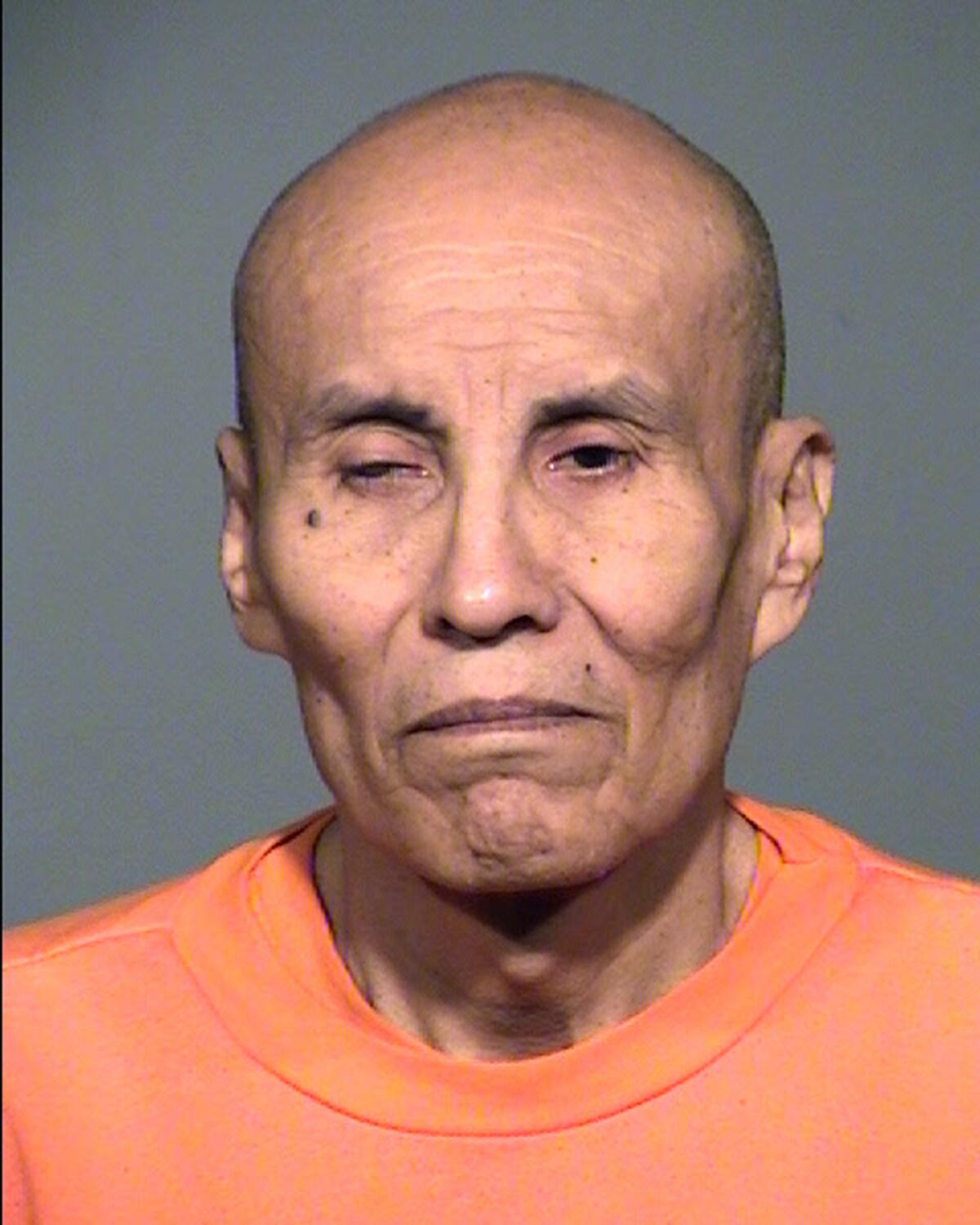Arizona Supreme Court urged to call off death row inmate’s mental competency exam

- Share via
PHOENIX — Prosecutors have asked the Arizona Supreme Court to call off an upcoming hearing scheduled by a lower-court judge to determine the mental fitness of a prisoner to be executed in what would be the state’s first use of the death penalty in nearly eight years.
Arizona Atty. Gen. Mark Brnovich’s office told the state’s highest court in a filing Wednesday that the May 3 mental competency hearing scheduled in Pinal County for death row inmate Clarence Dixon is likely to delay his May 11 execution. Dixon was sentenced to death for his murder conviction in the 1977 killing of Arizona State University student Deana Bowdoin.
The prosecutors are seeking to throw out the lower court’s order that concluded defense lawyers had shown reasonable grounds for holding a hearing over whether Dixon is psychologically fit.
Dixon’s lawyers have said their client erroneously believes he will be executed because police at Northern Arizona University wrongfully arrested him in a previous case — a 1985 attack on a 21-year-old student. His attorneys concede he was in fact lawfully arrested then by Flagstaff police.
Dixon was sentenced to life sentences in that case for sexual assault and other convictions. DNA samples taken while he was in prison later linked him to Bowdoin’s killing, which at that point had been unsolved.
His attorneys say Dixon’s inability to distinguish between reality and fantasy in the case involving the NAU student had started to spill into the case over Bowdoin’s killing.
Dixon had fired his attorney in the case involving Bowdoin’s death under an irrational belief that the DNA evidence wasn’t admissible in the murder case because he erroneously believes the NAU Police Department wasn’t a legal entity when it arrested him on the sexual assault charges, his current lawyers have said.
Prosecutors told the state Supreme Court that even though Dixon’s attorneys argued their client’s focus on the 1985 sexual assault conviction shows he was incompetent to decline his right to a lawyer, the courts in rulings after his murder verdict “found that Dixon’s focus on that legal challenge, though untenable, did not demonstrate a lack of competence.” Eric Zuckerman, one of Dixon’s attorneys, said in a statement: “The state’s attempt to overturn the lower court’s proper decision to grant a competency hearing to Clarence Dixon, who has a history of schizophrenia and previous findings of legal incompetency, undermines the legal process that will determine whether executing him would violate the Constitution.”
Dixon’s attorneys say putting Dixon to death would violate protections against executing people who are mentally incompetent. They cited a psychiatrist’s conclusion that their client lacks a rational understanding of the reasons for his execution.
Prosecutors said Dixon’s legal theory isn’t legally viable, but argued that his attempts to undo his murder conviction show he has a rational understanding of why the state is seeking his execution.
Defense attorneys say Dixon has been diagnosed with paranoid schizophrenia on multiple occasions, has regularly experienced hallucinations over the past 30 years and was found “not guilty by reason of insanity” in a 1977 assault case in which the verdict was delivered by then-Maricopa County Superior Court Judge Sandra Day O’Connor, nearly four years before her appointment to the U.S. Supreme Court. Bowdoin was killed two days after the verdict, according to court records.
Authorities have said the 21-year-old Bowdoin, who was found dead in her apartment, had been raped, stabbed and strangled. Dixon had been charged with raping Bowdoin, but the charge was later dropped on statute-of-limitation grounds. He was convicted, though, in her death.
The last time Arizona used the death penalty was in July 2014, when Joseph Wood was given 15 doses of a two-drug combination over two hours in an execution that his lawyers said was botched.
States, including Arizona, have struggled to buy execution drugs in recent years after U.S. and European pharmaceutical companies began blocking the use of their products in lethal injections. Last year, Arizona corrections officials revealed that they had finally obtained a lethal injection drug and were ready to resume executions.
In addition to asking the Pinal County court for a mental fitness proceeding, lawyers for Dixon have filed two other lawsuits over the past week.
In one lawsuit, they asked a court to bar the Arizona Board of Executive Clemency from holding his April 28 clemency hearing, arguing the makeup of the board violates a state law limiting the number of people from the same profession from serving on the board. Three of the board’s four current members are retired law enforcement professionals, the lawsuit said.
Dixon’s lawyers also filed a federal lawsuit protesting several conditions of his confinement since the execution warrant was issued and he was moved to another cell where he is observed around the clock and has limited access to personal property.
As of Friday afternoon, no hearings had been scheduled in either lawsuit.
Arizona has 112 prisoners on death row.
More to Read
Sign up for Essential California
The most important California stories and recommendations in your inbox every morning.
You may occasionally receive promotional content from the Los Angeles Times.










